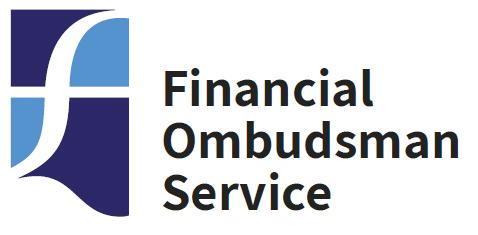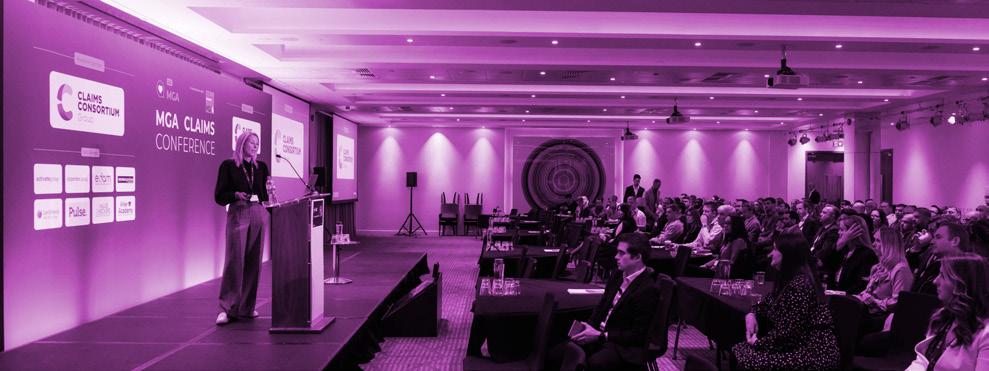Better Tomorrow



17 October 2024
Event report published by ILC

DISCLAIMER
Contributors
The views and opinions expressed within Better Tomorrow are reported from live events and are those of the individual contributor/s. They do not necessarily reflect the official policy or position of the contributor’s employer, organisation, committee or other group or individual.
ILC
While every effort has been made to ensure the accuracy of information, ILC will not accept responsibility for errors or omissions or for consequences arising from reliance on information published. The opinions expressed in Better Tomorrow are not necessarily the opinions of, or endorsed by ILC unless otherwise stated.
COPYRIGHT
All rights reserved. No part of the material contained within this publication may be reproduced or copied in any form or by any means without written permission from ILC.

Annual Conference Review, published by ILC as part of its Better Tomorrow insights library.
Sponsored by Witness Wise, the 2024 event took place at Chesford Grange, Kenilworth on 17 October.
At the event last year, I said I hoped the extreme volatility in the motor claims market that followed the Covid pandemic would start to dissipate, and that our industry would return to something like business as usual.
It’s fair to say that, over the past year, inflationary pressures have eased somewhat, and the supply chain has responded positively; accidental damage claims volumes remain subdued, and fewer people than ever are claiming for injuries. In 2024, we’ve seen motor premiums begin to flatten out.
Specialist motor players are reporting CORs back in the 80% range, and improving investment returns (which don’t normally get accounted for in the motor result) will combine to deliver cross-market profitability in motor in 2024, although Ernst & Young predicts Net Combined Ratios rising again to 104% in 2025.
For the CHO, the biggest challenge remains guiding ourselves to a successful conclusion to the GTA2, and like last year, this is at the top of the CHO’s agenda. We need a robust, yet flexible agreement that is independently administered and provides the means for credit hire companies and motor insurers to continue to service the mobility needs of their customers.
Its wider societal impact will be to reduce the pressure on the civil courts by obviating the need to issue proceedings, but to achieve this laudable aim, we urge that a collaborative approach to reaching GTA2 is essential.
This year’s conference agenda focused on the evolution of the GTA alongside a great mix of other topics and themes including an update from the Financial Ombudsman, a dive into the legal sector, and insight into Operation Kijang from the National Crime Agency.
I would like to thank all those who contributed to a truly insightful agenda, the details of which you will find over the following pages.
And finally, a big thank you, of course, goes to our conference sponsor Witness Wise and founder Gilly Daniels - who you will see also contributed to discussions during the day –as well as all those who joined us for another great event.
I look forward to catching up with you all again soon.
Kind regards

Anthony Hughes Chair & CEO CHO
















our industry!








Andrew Hogan practises from Kings Chambers in Manchester. He has more than 25 years of experience in advising upon credit hire issues and arguing cases in court.
At the CHO Annual Conference 2024, held at Chesford Grange and sponsored by Witness Wise, legal and
He has conducted more than 1000 credit hire trials, and is a very experienced barrister. He is the author of a blog on credit hire: www.credithirebarrister.com

Joining host Craig Budsworth, Group Technical Director, AX, were panellists Andrew Hogan, Barrister, Kings Chambers; Louise Duffy, Head of Scotland, Canford Law; Gilly Daniels, Director, Witness Wise; and Neil Garvin, Director, Garvins Law.

In a far-reaching discussion, they addressed allocation issues, impecuniosity standards, witness statement integrity, and the potential role of AI in case preparation.
Andrew led with a detailed analysis of case misallocation in credit hire claims. He expressed concerns over high-value cases being allocated to small claims courts, where claimants are unable to recover their costs.
“I keep seeing valuable claims worth five figures ending up in small claims,” he noted, adding that misallocation not only impacts claimants but chokes court dockets with cases that might otherwise settle.
The issue of cost recovery in higher-value claims remains central to case management, Andrew explained, cautioning that judges sometimes exercise more discretion than warranted.
“Judges are thinking they have far wider discretion than they do,” he emphasised, urging more structured arguments to ensure appropriate allocations that respect case value and complexity.

Andrew also addressed impecuniosity, highlighting the difficulty claimants face in proving they lack funds to cover credit hire costs independently. Despite economic data showing widespread financial struggle, he suggested that courts have been slow to deem claimants impecunious.
“Credit hire is the remedy of the poor,” he stated, emphasising the real-world financial constraints of clients who rely on credit hire services post-accident.
“Credit hire is the remedy of the poor…Judges need to understand the real financial constraints of claimants.”
Supporting this, other panellists pointed out that credit cards or savings should not necessarily be treated as accessible resources for credit hire, especially given the high interest rates.
Louise mentioned practical approaches in Scotland, where courts allow claims to trial within six months, enabling quicker outcomes for claimants.
Meanwhile, Gilly discussed challenges around witness statements, particularly for claimants whose first language is not English. Stressing the need for authentic client language, she warned that standardised statements can damage credibility, especially if the claimant struggles with complex legal terms.
“If somebody uses the phrase ‘kids,’ use that instead of ‘children,’” she advised, underscoring that witness statements should reflect the claimant’s real voice.
The panel debated the effectiveness of AI in drafting statements, with Gilly cautioning against over-reliance on AIgenerated language that might miss critical nuances.
“AI can support but not replace human oversight, especially in handling sensitive or case-specific details,” she noted.
The role of AI in credit hire, particularly for drafting witness statements and compiling evidence, drew mixed reactions.
While Andrew highlighted AI’s potential in streamlining document preparation, other panellists raised concerns over privacy and privilege.
“Use terms that clients understand; witness statements should reflect the claimant’s real voice.”

“Credit hire companies might benefit from technological efficiencies, but legal protections and case nuances demand experienced oversight,” he said, adding that using AI to create draft statements could expedite the process.
But the consensus held that human input remains crucial for accuracy.
The panel also discussed the ongoing challenges of managing fraud within credit hire claims and how firms can better protect themselves while supporting clients.
The importance of upfront communication was repeatedly highlighted, with speakers suggesting that managing client expectations from the outset could mitigate complaints.
Neil recommended framing the credit hire agreement as essential to client welfare, not an adversarial document.
“Explain that as long as they cooperate, they won’t be responsible for charges; this helps establish a cooperative relationship,” he advised.
The debate concluded by exploring the broader narrative that credit hire serves as an essential lifeline for those who need it most. Andrew urged industry representatives to continue promoting credit hire’s societal value to judges and the wider public.
“Credit hire keeps people moving, from getting children to school to reaching work on time. It’s vital we communicate these benefits,” he asserted.
“AI can support, but human oversight remains crucial for casespecific details.”


Alina Kairi
Volunteer Ambassador
Dementia UK
Dementia UK volunteer ambassador Alina Kairi took the stage at the CHO Annual Conference, held at Chesford Grange and sponsored by Witness Wise, to spotlight the vital work of Admiral nurses in supporting families affected by dementia.
Her address underscored the severe impact of dementia on carers, advocating for increased awareness and support for Dementia UK’s initiatives.
Alina began with a personal account, sharing the difficult experience of witnessing her grandmother’s decline due to dementia, a story that resonated strongly with attendees. She likened the carer’s experience to being lost in a maze, struggling to find clarity and support as they navigate the overwhelming demands of care.

“Imagine being in a maze where each turn is met with confusion and frustration. That’s the reality for dementia carers.”

“40% of informal carers experience clinical depression or anxiety.”
“Dementia UK opens doors for families who often feel shut out.”
“Imagine being in a maze where each turn is met with confusion and frustration. That’s the reality for dementia carers,” she explained.
She said that dementia is a complex and multifaceted condition with over 200 types, affecting not only memory but the ability to perform daily activities.
There are over 900,000 people in the UK living with dementia, with over 700,000 carers providing informal support—many of whom face significant psychological stress. Studies show that 40% of these carers experience clinical depression or anxiety, a statistic that highlights the urgent need for support.
Dementia UK’s Admiral nurses play a critical role, providing tailored support to individuals affected by dementia at any stage of the condition. These specialised nurses offer guidance and reassurance to families, working in community settings, care homes, and through virtual consultations.
Alina noted that while there are currently 456 Admiral nurses nationwide, demand far exceeds availability, with thousands of families lacking access to this essential service.
Dementia UK’s helpline, which served over 33,000 people last year, is another lifeline, offering consultations with experienced nurses who provide both emotional support and practical advice. The service is available daily, providing much-needed assistance to those in crisis. The organisation’s virtual clinics, where families can book video or phone appointments with nurses, also form a key part of their outreach efforts.
She ended her presentation, which underscored the CHO’s commitment to social responsibility, by encouraging attendees to support Dementia UK’s mission by contributing via a JustGiving page set up for the conference, or volunteer work.
Alina said, “Dementia UK opens doors for families who often feel shut out.”
Every three minutes someone in the UK develops dementia. Dementia UK is the specialist dementia nursing charity that is there for the whole family. Our nurses, known as Admiral Nurses, provide free, specialist advice, support and understanding to anyone affected by dementia, whenever it’s needed. With the support of an Admiral Nurse and Dementia UK - whether it’s on our Helpline, through our Clinics service, or in the community - families we support know they’re not alone.
If you need advice or support on living with dementia, contact Dementia UK’s Admiral Nurse Dementia Helpline on 0800 888 6678 or email helpline@dementiauk.org















Martin Brown Senior Investigator National Crime Agency (NCA)

At the CHO Annual Conference 2024, sponsored by Witness Wise, Martin Brown, Senior Investigator at the National Crime Agency (NCA), presented an in-depth look at the sophisticated methods employed by organised crime groups (OCGs) to exploit the vehicle finance sector.
He detailed his experience as lead investigator on ‘Operation Kijang,’ a highstakes investigation into car finance fraud.
The session highlighted the scale and ingenuity of the operations, the widespread availability of personal data for fraudulent use, and the crucial role of interagency collaboration in combatting such crimes.
“A stolen car isn’t worth much if you can’t sell it, so these groups are going through elaborate lengths to make these vehicles appear legitimate.”
He revealed that the investigation began with the case of a stolen Audi, which quickly unveiled a complex fraud network using identity theft to acquire luxury vehicles on finance agreements.
These vehicles were then re-identified with new VIN numbers and other fraudulently obtained genuine documentation to be sold to unsuspecting buyers.
“A stolen car isn’t worth much if you can’t sell it,” he explained, “so these groups are going through elaborate lengths to make these vehicles appear legitimate.”
One of the most alarming aspects of the case was the ease with which criminals obtained sensitive personal data from the dark web. Martin revealed that for as little as £50 fraudsters could purchase comprehensive personal information, including driver’s license details, National Insurance numbers, and bank information.
“Most of us in this room probably have our details for sale somewhere on the dark web,” he noted, underlining the vulnerability of personal data in the digital age.
Once armed with this information, criminals used it to fabricate nearly flawless driving licenses. With details as accurate as the date of issue and driving categories, these licenses were nearly indistinguishable from legitimate ones.
“Only the photo and signature differed from the real document,” Martin said.
The OCG involved in Operation Kijang took extreme measures to alter vehicle identities, a process that included changing VIN numbers and producing high-quality VIN stickers and engraved plates.
“In some cases, even vehicle examiners couldn’t tell the difference between these reidentified vehicles and legitimate ones,” Martin stated, pointing to one instance where a police examiner was unable to confirm a vehicle’s stolen status, despite suspicions.
The stolen and re-identified vehicles were subsequently sold on mainstream platforms like AutoTrader, with unsuspecting buyers paying market prices for cars that would eventually be reclaimed by insurers or seized by law enforcement.
“In this scheme, there were many secondary victims—including buyers who unknowingly purchased stolen cars and had no recourse to recover their money,” Martin said, noting the far-reaching consequences of these crimes.
There were also instances of false insurance claims and hire cars going missing.
“Most of us in this room probably have our details for sale somewhere on the dark web.”
However, he praised the industry’s support in identifying and disrupting fraudulent activities. He shared how real-time collaboration with dealerships allowed his team to intercept fraudulent transactions, with some dealers allowing criminals to “purchase” cars while law enforcement observed to learn more about the network’s operations.
“Dealers and manufacturers are instrumental partners in helping us understand these networks,” Martin said, adding that several high-value vehicles were tracked and recovered through cooperative efforts.
UK Law Enforcement also utilised covert tactics to fill intelligence gaps, such as tracking stolen vehicles across the country to determine whether they were shipped overseas or resold within the UK.
Martin also warned that fraudsters often select specific car models with high resale value, admitting that they have a detailed understanding of the cars that fetch the highest prices overseas.
“If transactions are too easy, it might be worth a closer look.”

He concluded with key lessons from the investigation, urging the sector to adopt both proactive and reactive measures against fraud. He advised delegates to look out for suspicious behaviour and recommended vigilance over common fraud red flags, including inconsistencies in signatures on identity documents.
“If transactions are too easy, it might be worth a closer look,” he warned.
He also underscored the importance of maintaining data records, as this information often proves critical in tracking down and disrupting OCG operations. He urged industry representatives to hold on to relevant data like IP addresses and digital footprints, as investigations sometimes unfold over extended periods.
With high-profile arrests and the dismantling of significant parts of the network, Operation Kijang has been deemed a success, but Martin acknowledged that similar threats remain.
He stressed that the sector’s continued partnership is essential to staying ahead of evolving criminal tactics, noting, “The organised crime groups we deal with are resilient and adaptable—our response must be just as dynamic.”



















At the CHO Annual Conference 2024, a key session titled ‘The GTA Evolution’ brought together experts to dissect and propose critical reforms for the General Terms of Agreement (GTA).
Held at Chesford Grange and sponsored by Witness Wise, the event saw key industry leaders tackle the operational challenges and improvements necessary to create a more efficient, transparent, and consumer-centric claims resolution process in the motor industry.
“The reformed GTA should place the consumer at the heart of the claims process.”
The session focused on the evolution and potential reformation of the GTA, an agreement pivotal to the efficient handling of non-fault motor insurance claims. The GTA, established to streamline claims processes, was described as both beneficial yet outdated, with industry leaders calling for modernisation and enhanced cooperation between credit hire operators (CHOs) and insurers.
Taking part in the debate were Anthony Hughes, CEO, CHO; Peter Highfield, Motor Third Party Property Damage Claims Manager, NFU Mutual; Craig Budsworth, Group Technical Director, AX; Chris Ashworth, Founder of ILC & Consultant at Enterprise Mobility; and Becky Fairbairn, Technical Claims Manager – Motor, Allianz UK.
Opening the session, Anthony addressed the urgent need for GTA reform, emphasising that while the agreement had long benefited the industry, it now required modernisation to stay relevant.
He articulated the purpose of the reform as aiming to reduce operational costs, increase efficiency, and place consumer interests at the forefront.
Anthony said, “We want to genuinely put the consumer at the heart of the process. There’s a lot of talk about it, but have we ever really done it? My view is no.”
He added that the reformed GTA should drive “good behaviour” among stakeholders, eliminating the friction and loopholes that delay resolutions and inflate costs.
“Compulsory ADR will be a game-changer, bringing timely and binding decisions.”
One of the most anticipated reforms discussed was the introduction of a compulsory Alternative Dispute Resolution (ADR) process to resolve disputes quickly and cost-effectively. Peter highlighted that ADR would prevent cases from escalating unnecessarily and would ensure decisions on disputed claims are made within a defined timeframe, ideally around 90 to 100 days. This change would create significant savings in both time and resources.
Craig said that the new dispute resolution process is set to be “game-changing” for the industry, adding, “We want the GTA to become aspirational.”
Meanwhile, Chris said, “Taking the time to understand each other’s positions has pinpointed where the key areas of friction are. As we go into the changes, it’s not about a complete overhaul but about ensuring the process is more streamlined and focused on quick settlements.”
“Insurers need clean payment packs for swift processing, ensuring faster payouts and avoiding penalties.”
A consistent theme across the panel was the emphasis on operational efficiency. Becky stressed the need for “clean payment packs,” a standardised submission of documents required to process claims without delays. She noted that such standardisation would reduce ambiguities and eliminate unnecessary disputes:
“We don’t want cases to go to penalties,” she said. “Good claims are settled claims, and efficient processes are beneficial for all stakeholders involved.”
The panel also discussed a potential shift to incentivise quicker resolutions, whereby insurers and CHOs would face proportional penalties for delayed responses or unclean documentation, deterring parties from delaying tactics and encouraging proactive management.
Craig highlighted the importance of leveraging technology to improve claims handling, suggesting that advanced data capture and possibly artificial intelligence (AI) could streamline the entire workflow:
“Optical Character Recognition (OCR) and AI tools could help us standardise and quickly verify payment packs,” he said, “reducing the time handlers spend on repetitive tasks.”
Anthony said that adopting such technology could minimise human error and streamline claims settlements, as automated processes could instantly flag missing or incomplete information, expediting approvals and resolutions.
Meanwhile, Chris pointed out the importance of trust in ensuring the successful implementation of these reforms, suggesting that over the last two years dialogue between insurers and CHOs had significantly improved.
The panel echoed this sentiment, acknowledging that a cooperative relationship is critical to the success of the new GTA structure.
“Insurers and CHOs must shift from adversarial interactions to collaborative problem-solving if we are to ensure quick, fair outcomes for the customer,” Becky commented.
“The reformed GTA’s focus on transparency and operational efficiency is vital for long-term sustainability.”
“Insurers and CHOs must shift from adversarial interactions to collaboration, and that’s the path forward.”
To ensure compliance and address noncooperative behaviour, a Strategic Board is being set up, comprising representatives from both insurers and CHOs. The board will oversee the adherence to new rules, including mandatory participation in ADR for eligible cases.
Craig suggested that penalties for noncompliance could be substantial enough to prompt insurers and CHOs to prioritise adherence, ensuring smooth operation across the board.
Meanwhile, Anthony hinted at possible “yellow cards” or warnings for minor breaches, escalating to “red cards” for repeat offenders, potentially leading to a temporary suspension from using the GTA.
The session ended with a commitment from all panellists to carry forward the reforms discussed and an optimistic outlook for implementing these changes within the next year.
Peter said, “I think with the good group of people - that are open minded to hearing both sides of the story - there’s great momentum and a will to push on to make something that’s much more efficient.”
Anthony closed, “We’re not here just to talk; these are real steps toward a faster, more transparent, and customer-focused claims process.”







At the CHO Annual Conference 2024, sponsored by Witness Wise, Jo Wright, co-founder of Coaching Culture, delivered a compelling session on the power of transformational conversations in building high-performing, engaged teams.
Her talk emphasised the profound impact that empathetic, coaching-based dialogue can have in workplaces, encouraging leaders to adopt a people-centered approach to communication.
Reflecting on a personal experience, she recounted a challenging interaction with a former manager that changed her perspective on leadership. She said the encounter led her to co-found Coaching Culture, an organisation dedicated to fostering coaching skills within workplaces.

“Words matter. Conversations matter. Line managers matter.”
“Words matter. Conversations matter,” Jo insisted.
She highlighted the critical role of conversations in shaping workplace culture and mental wellbeing, stressing that line managers have a key role to play in influencing employees’ overall experiences and satisfaction at work.
Jo drew a clear distinction between transactional and transformational conversations. Transactional interactions, which are task-focused, often leave employees feeling unengaged. In contrast, transformational conversations, centered on genuine interest and understanding, cultivate trust and motivation.
She urged managers to embrace a coaching mindset, promoting open dialogue to understand employees’ motivations and aspirations.
“If you put people first, the results will follow,” Jo said – quoting Casper Craven’s book Be More Human - highlighting that focusing on personal connections and wellbeing drives performance more effectively than taskoriented interactions.
“The role of the manager, in short, is becoming that of a coach”
Her session also touched on how the Covid-19 pandemic shifted workplace dynamics. With employees re-evaluating their priorities, companies face challenges like “quiet quitting” and a shift in the power balance from employer to employee.
She noted that people increasingly expect meaningful work and want to feel valued. According to a study, 70% of employees feel their manager impacts their mental health as much as personal relationships, highlighting the importance of managers adopting supportive communication styles.
Acknowledging that managers are often under pressure to achieve results themselves, Jo said that “dialling up” on transformational conversations doesn’t necessarily demand extra time. Instead, she encouraged leaders to integrate empathy into everyday exchanges, ensuring employees feel heard and valued.
“Fundamentally, what I’m talking about is winning hearts and minds,” she said, reiterating the need for leaders to prioritise people over processes.

To build a coaching culture, she shared essential skills that all managers should cultivate: asking insightful questions, listening actively, and fostering trust.
“Everyone should have some level of coaching skills,” she stated, likening coaching to cooking - an essential skill that, while not everyone needs to master professionally, everyone can benefit from understanding.
She closed by challenging attendees to consider their own communication styles and how they could transform transactional exchanges into opportunities for engagement and growth. She reminded attendees of the ripple effects of their conversations.
Every conversation, she argued, impacts not only the immediate participants but also others within their personal and professional networks.
“People will forget what you said. People will forget what you did. But they will never, ever forget how you made them feel,” she concluded.
“70% of employees feel their manager impacts their mental health as much as personal relationships.”





































17 October 2024
Event report published by ILC